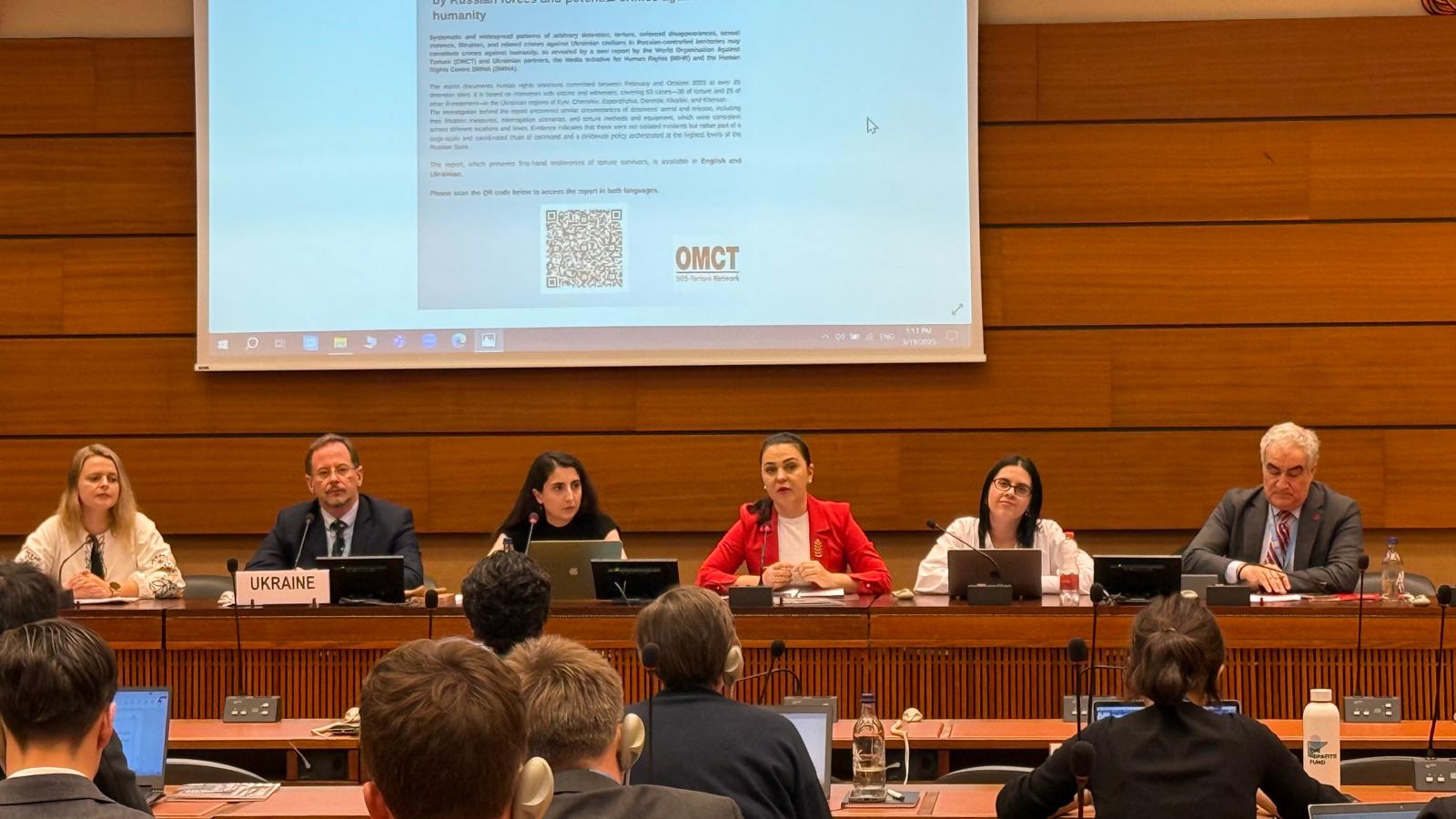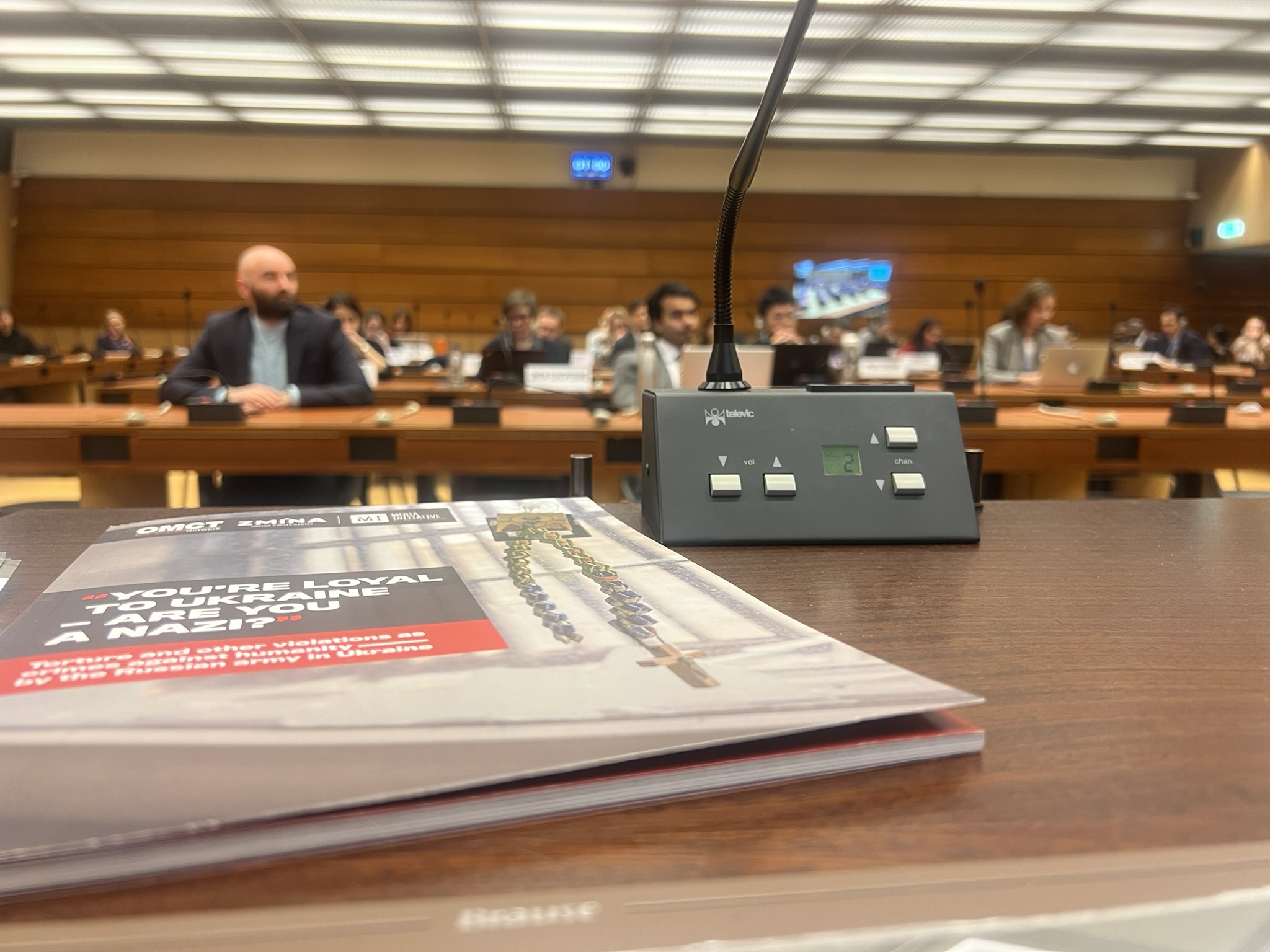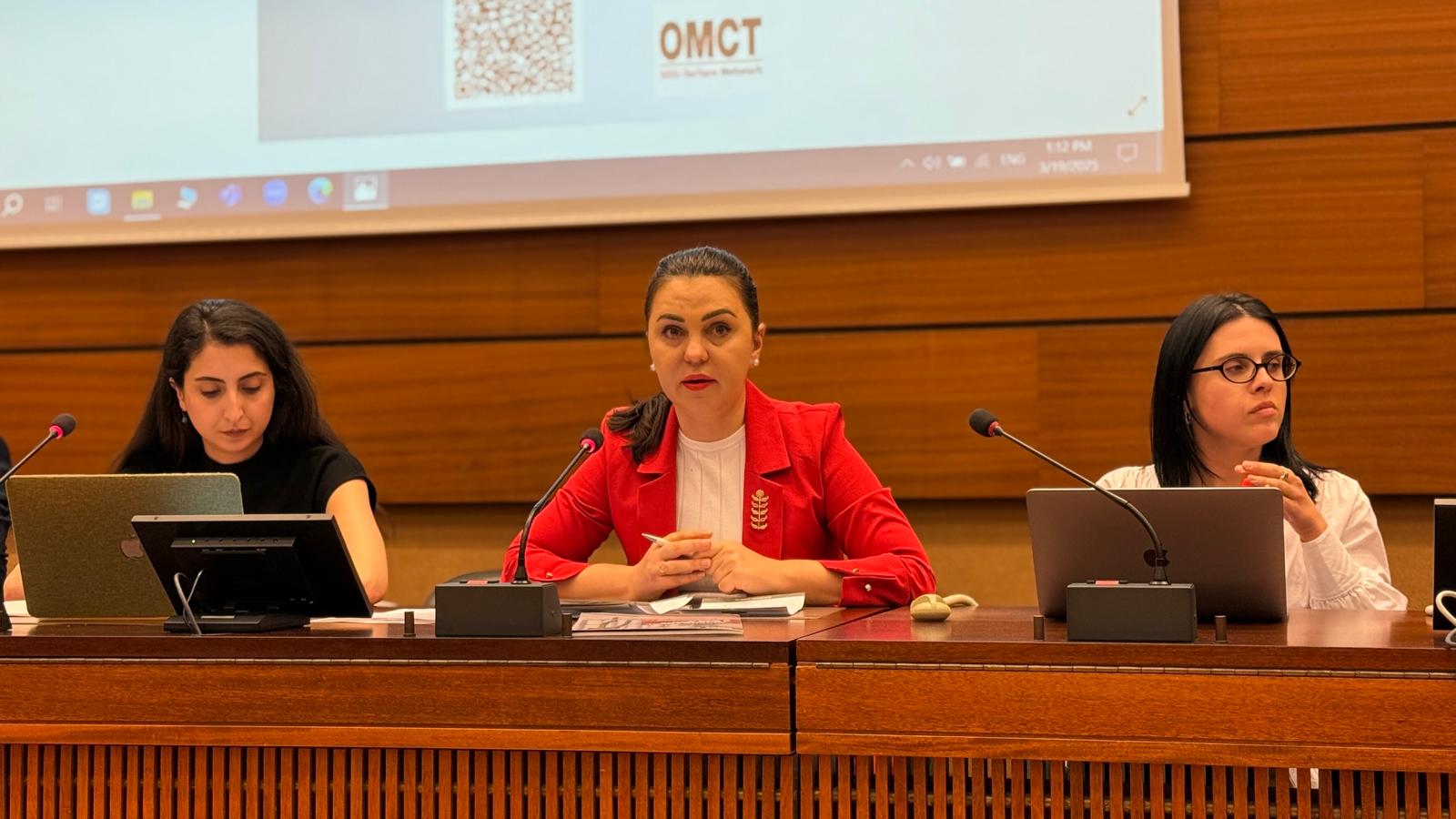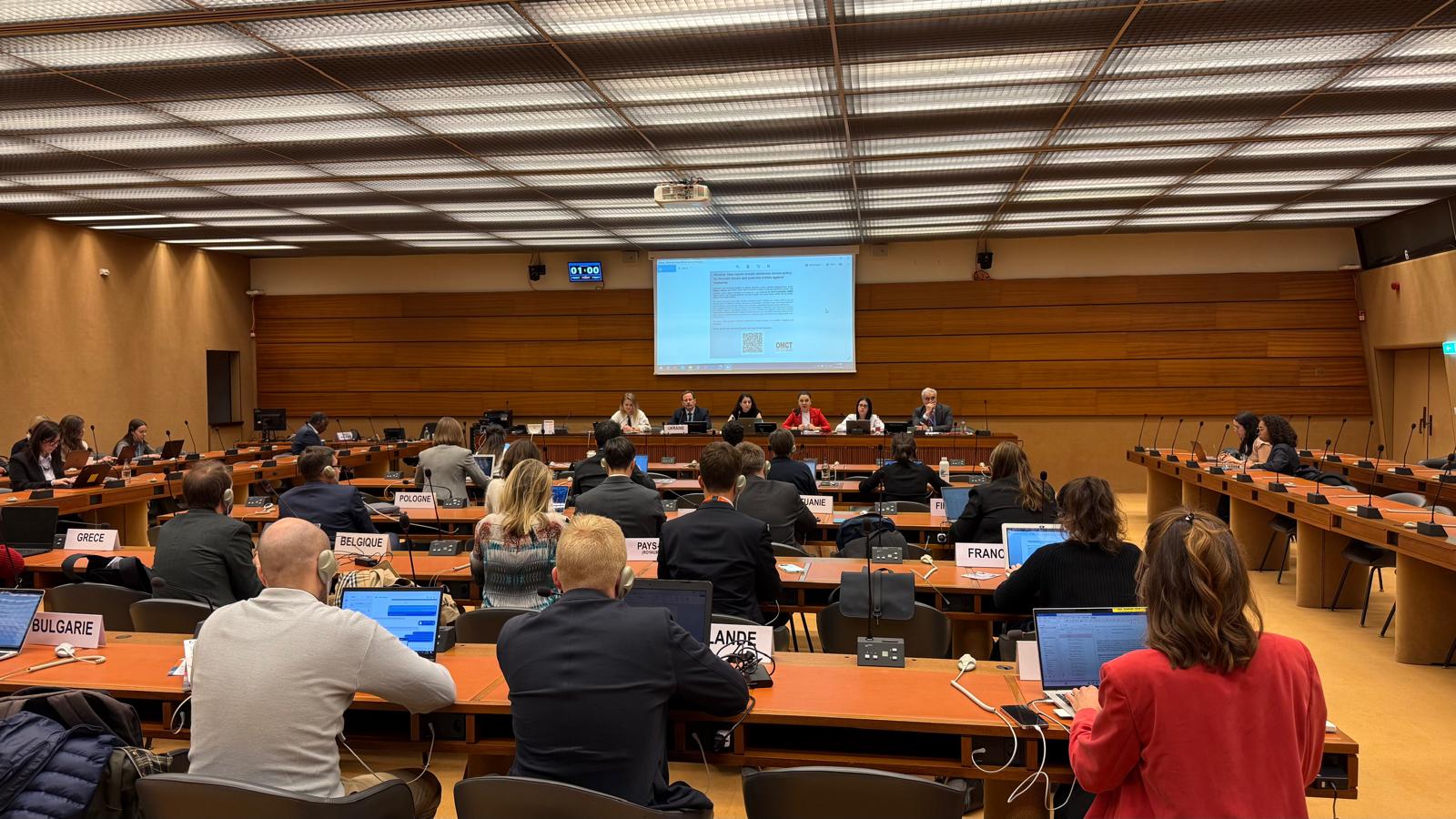ZMINA, MIHR and OMCT present report at the UN on torture as a crime against humanity during Russia’s war in Ukraine
On 19 March, a side event on “Torture and arbitrary detention as crimes against humanity during Russia’s War in Ukraine: Justice for Survivors” was held in Geneva within the framework of the 58th session of the UN Human Rights Council.

The event was organised by the World Organisation Against Torture (OMCT), the Human Rights Centre ZMINA, the Media Initiative for Human Rights (MIHR) and Physicians for Human Rights (PHR).
The event was aimed at drawing attention to the arbitrary detentions, torture and sexual violence committed by the Russian army in Ukraine since the beginning of the full-scale invasion, which constitute crimes against humanity. These crimes are part of a broader strategy of persecution aimed at suppressing dissent, erasing Ukrainian identity and consolidating control over the occupied territories.
During the event, human rights defenders presented the report “You’re loyal to Ukraine – are you Nazi? Torture and other violations as crimes against humanity by the Russian army in Ukraine”.

As noted by the Head of the Board of the Human Rights Centre ZMINA, Tetiana Pechonchyk, the report is based on 63 in-depth interviews with civilians who directly or indirectly suffered and/or witnessed torture and other ill-treatment committed by the Russian military. These interviews were conducted by the organisations MIHR and ZMINA, both over the phone and in person during 24 field missions to the liberated territories in the Kyiv, Chernihiv, Zaporizhzhia, Donetsk, Kharkiv and Kherson regions.
According to her, the analysis of the evidence collected using the methodology developed jointly with the OMCT allowed to identify several patterns and recreate a possible plan of attack by Russian troops on civilians in the occupation.
“The pattern analysis of the documented cases shows that the torture of civilians in different regions of Ukraine is not a series of isolated incidents. Torture was committed systematically, in the context of other serious human rights and humanitarian law violations, such as enforced disappearances, extrajudicial killings, arbitrary detention, sexual violence and denial of the right to a fair trial,” said Pechonchyk.

As the human rights defender reported, the contextual analysis shows that the chain of events from the arrest of the victims to their release or death from torture in the vast majority of documented cases is strikingly similar.
“This indicates that Russian forces in all territories followed a common attack plan: a plan that targeted a broad group of civilians united on the basis of political views,” she added.
According to Pechonchyk, the Russians identified this group by the following markers: subscriptions to Ukrainian news or Ukrainian music on electronic devices; electronic devices without any stored information, perceived as an attempt to hide it; contacts on electronic devices, including relatives, neighbours or other acquaintances who serve in the Ukrainian army or law enforcement agencies; records of donations to the Ukrainian army or pro-Ukrainian volunteer groups in the history of banking transactions; photographs depicting elements of the state emblem or flag of Ukraine, the EU or the US emblem or flag; publications, comments and preferences on social media, including in “private” chats, in which the victims indicated that they did not support the Russian invasion; living near the positions of the Russian army that were shelled by the Ukrainian army; communication in Ukrainian, etc.
Pechonchyk stated that, in their research, ZMINA, the MIHR and the OMCT came to the same conclusion as the UN Independent Commission of Inquiry on Ukraine, which presented its report in Geneva on the same day: that enforced disappearances and torture are systematic in the territories occupied by Russia and should be considered crimes against humanity.

Opening remarks were also delivered by Oleksandr Kapustin, Deputy Permanent Representative of Ukraine to the United Nations and other international organisations in Geneva.
Other speakers at the event: Lyubov Smachylo, Head of the Analytical Department of the Media Initiative for Human Rights; Iryna Baran-El-Hali, International Advocacy Manager of the Crimean Human Rights Group; and Saman Zia-Zarifi, Executive Director of Physicians for Human Rights.
the event was moderated by Evindar Bashboha, Human Rights Officer of the World Organisation Against Torture (OMCT).
The event drew attention to the persecution of civilians in the occupied territories of Ukraine and highlighted the urgent need for international support to release detained civilians, intensify documentation efforts and ensure justice for survivors.
If you have found a spelling error, please, notify us by selecting that text and pressing Ctrl+Enter.















